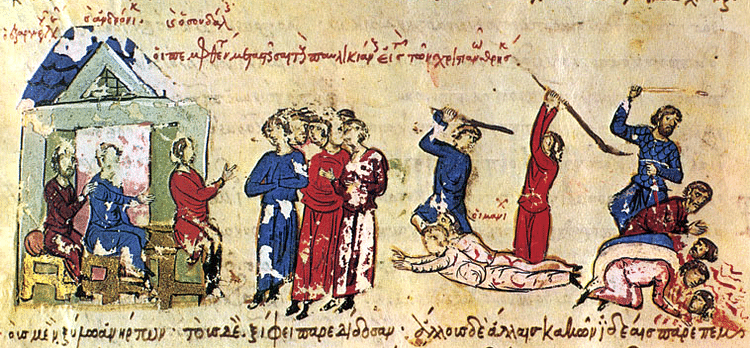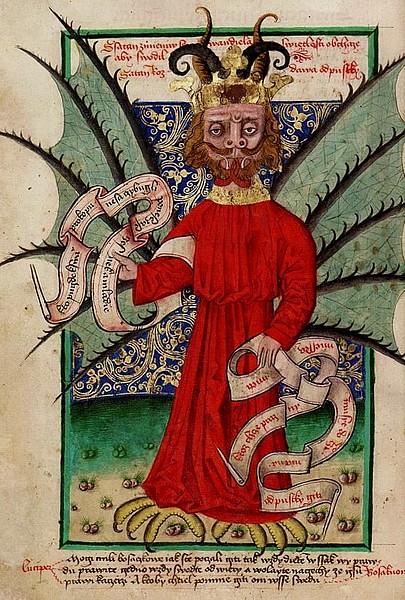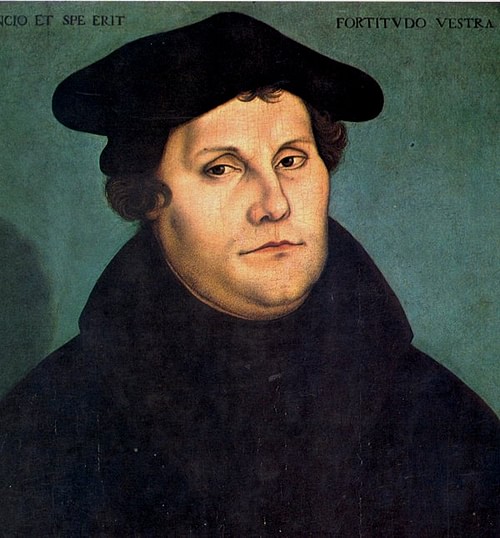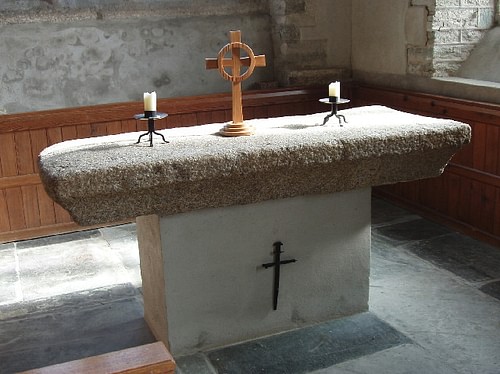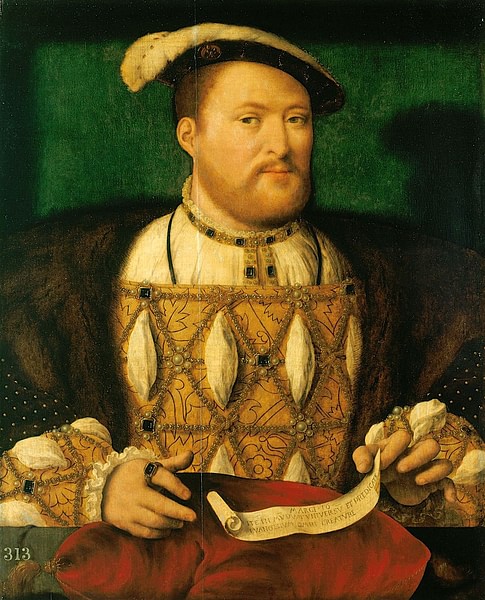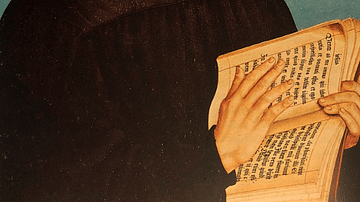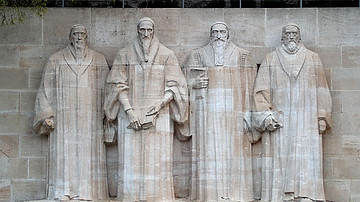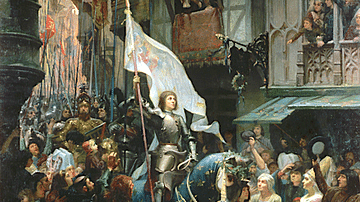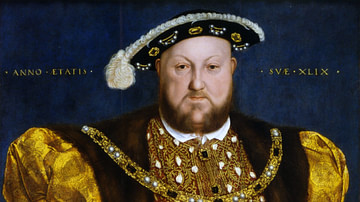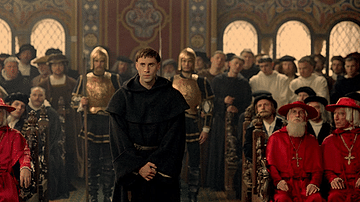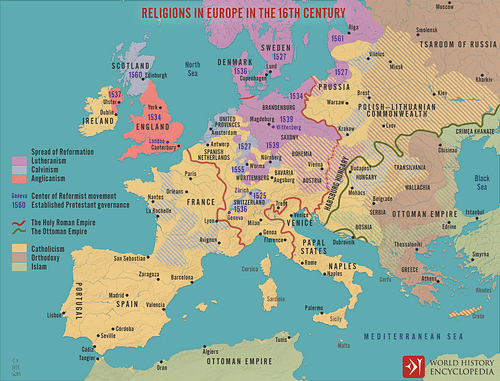
The Protestant Reformation (1517-1648) refers to the widespread religious, cultural, and social upheaval of 16th-century Europe that broke the hold of the medieval Church, allowing for the development of personal interpretations of the Christian message and leading to the development of modern nation-states. It is considered one of the most important events in Western history.
The dates of the Reformation are not universally agreed upon. Some scholars date the event 1400-1750 (from the dissent of Jan Hus to the end of the pre-industrial society), while others suggest 1517-1685 (from the dissent of Martin Luther to the revocation of the Edict of Nantes), and there are many other claims regarding dating which have equal merit. The dates 1517-1648, however, are the most widely accepted, setting the beginning of the Reformation at Martin Luther's dissent and the end at the Treaty of Westphalia that concluded the Thirty Years' War which started as a dispute between Catholics and Protestants.
Although the Reformation was previously understood as a monolithic event, current scholarship interprets it more as Protestant Reformations, a series of protests against the corruption of the medieval Church, seeking reform and, initially, the leaders of these protests had no intention of breaking away from the Church. A prime example of this is the Bohemian Reformation (c. 1380 - c. 1436), precursor to the Protestant Reformation, which initially only sought to remedy unbiblical practices by the Church.
By the 15th century, corruption in the Church was widespread and devout believers sought to rectify this. The refusal of the Church to address these criticisms eventually led to the schisms that would establish Protestant Christian sects which developed into denominations such as Lutheranism, Calvinism, Anglicanism, and others.
The Protestant Reformation completely changed the European cultural, religious, social, and political landscape and is often referred to as the birth of the modern age as it coincided with and was encouraged by the Renaissance of the 15th-16th centuries. Although there were earlier movements in response to the corruption of the Church, modern technology in the form of the printing press allowed for the dissemination of protestant literature and the publication of the Bible in the vernacular, resulting in widespread support for the cause and the end of the monolithic religious, cultural, and political authority of the Church.
The Medieval Church
The Church dominated medieval Europe (c. 476-1500) as the sole authority on spiritual matters and, as it became more powerful, influenced the spheres of politics and culture. In time, the pope became a significant political presence and, generally speaking, spent more time and effort on worldly affairs than religious matters. The hierarchy of the Church – pope, cardinals, bishops/archbishops, priests, and those in monastic orders – began to exercise their authority more for their own personal gain and comfort than the spiritual well-being of the people.
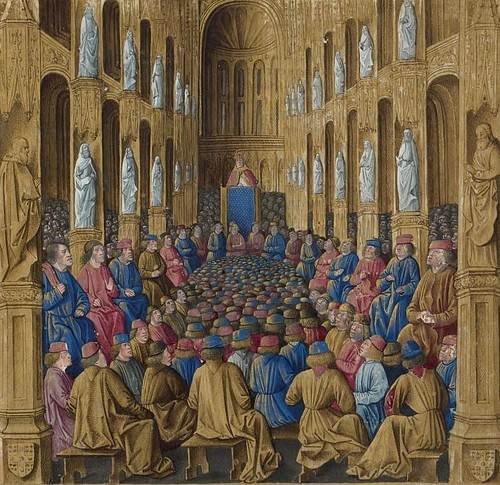
The Bible was only available in Latin – which laypeople could not read – and the Christian Mass was also recited in Latin as were the prayers (such as the Our Father and Hail Mary) taught to the people. Although the Church mandated adherence to its vision of Jesus Christ's message, this did not resonate with many laypeople who practiced a kind of blend of Christianity with pagan folk belief. The inaccessibility of church teachings, coupled with the obvious display of luxury and comfort by the clergy, led to reform movements as early as the 7th century, and according to some interpretations, even earlier.
Early Heresies & Reformers
These movements were condemned by the Church as heresies and were routinely crushed, often ruthlessly, as the clergy sought to maintain their authority and power. One of the earliest movements was the Paulicians (7th-9th centuries) who advocated a return to the simplicity of early Christianity and the life of Saint Paul (l. c. 5 to c. 67) and rejected the sacraments of the Church. The Paulicians were eventually stoned to death, burned at the stake, or exiled.
Other movements followed, however, such as the Bogomils in the 11th century and the Cathars of the 11th-13th centuries, who were followed by still others. The English cleric, philosopher, and theologian John Wycliffe (l. 1330-1384) challenged the authority of the clergy, their luxuriant lifestyles, and their arrogance, arguing that everyone should have access to the Bible and the work should no longer be held hostage by a privileged few who interpreted it for the many, often in ways that only empowered the hierarchy. He translated the Bible from Latin to Middle English (the so-called Wycliffe Bible) or, more likely, directed his friends and associates in the translation.
Wycliffe argued that the scriptures were the only authority and the church hierarchy, including the pope, was unbiblical. He disseminated his views through lay preachers and pamphlets printed using xylography (woodblock printing) and inadvertently helped spark the bloody Peasants' Revolt of 1381 by challenging the established order. He died of a stroke in 1384 and was afterwards condemned as a heretic and his remains exhumed and burned.
Wycliffe inspired Jan Hus (l. c. 1369-1415), philosopher, theologian, and rector of the Charles University in Prague, who preserved Wycliffe's writings and advocated for reform. He was especially critical of the sale of indulgences – writs sold by the Church to ostensibly reduce one's time in purgatory – just as Wycliffe had been. His earlier advocacies were tolerated, but when he challenged the validity of indulgences and the authority of the pope, he was arrested and burned at the stake in 1415. His followers continued to fight for reform and then to separate themselves from the Church. Their efforts continued the Bohemian Reformation and eventually led to the Hussite Wars (1419 to c. 1434) between Hussite reformers and church loyalists who won the conflict.
Martin Luther & Indulgences
Even though in the present day these reformers are recognized as the pioneers of the Reformation, there is no evidence they, initially, had any effect on the central reformist Martin Luther (l. 1483-1546), a German monk who also objected to the sale of indulgences. No matter how one chooses to date the Protestant Reformation, Martin Luther stands at its center, and his works, charisma, and intelligence sparked a movement he never intended and, no doubt, could not have imagined.
The greatest blow to the authority of the Church in the Middle Ages had not come from any individual or movement but from the Church's inability to address the suffering and causes of the Black Death pandemic of 1347-1352. The plague ravaged Europe, and none of the efforts of the Church had any effect on alleviating suffering or curbing the outbreak. People began to rely on folk remedies and supplications to spirits and ancestors at the same time they might pray to the Virgin Mary or the saints. At the same time, there was no other spiritual authority than the Holy Roman Catholic Church. Heaven, purgatory, and hell were understood as absolute realities, and to avoid hell and spend less time in purgatory, one had to suppress whatever doubts one had and adhere to the Church's teachings.
Among these was the efficacy of indulgences, which were purchased to shorten one's time in purgatory (or the stay of a loved one) and speed the soul on toward heaven. Martin Luther was an ordained Augustinian monk, doctor of theology, and professor at the University of Wittenberg in 1516 when the Dominican friar Johann Tetzel arrived in the area to sell indulgences to help finance the rebuilding of St. Peter's Basilica in Rome. Tetzel was an effective salesman who became famous for the saying (whether his own or only attributed to him) "When the gold in the coffer rings, the rescued soul toward heaven springs", meaning that as soon as one bought an indulgence, their loved one was released from purgatorial fires. Luther objected to this practice generally but could not tolerate Tetzel selling indulgences in his region.
On 31 October 1517, Luther posted a series of arguments, Disputation on the Power and Efficacy of Indulgences, later famously known as his Ninety-Five Theses. According to tradition, Luther nailed these to the door of the Wittenberg church, but modern scholarship has challenged this claim. Whether he posted them at the church or sent them to his bishop or both, they were copied by Luther's friends and supporters, and thanks to the invention of the printing press c. 1440, they were quickly spread throughout Germany in 1518, arriving in other countries, including England and France, in 1519.
Luther claimed that, if God had ordained purgatory, the pope had no authority to shorten one's stay there and, if the pope did have such authority, he should alleviate the souls suffering there by freeing them without remuneration:
I claim that the pope has no jurisdiction over purgatory…If the pope does have the power to release anyone from purgatory, why in the name of love does he not abolish purgatory by letting everyone out? If for the sake of miserable money he released uncounted souls, why should he not for the sake of most holy love empty the place? To say that souls are liberated from purgatory is audacious. To say they are released as soon as the coin in the coffer rings is to incite avarice. The pope would do better to give everything away without charge. The only power which the pope has over purgatory is that of making intercession on behalf of souls, and this power is exercised by any priest or curate in his parish. (quoted in Bainton, 68)
In challenging the sale of indulgences, Luther challenged the authority of the pope and so the entire hierarchy of the Church. Citing Romans 1:17 (which reads, in part, "the just shall live by faith") Luther claimed there should be no intermediary between the individual believer and God and that scripture alone should dictate the Christian walk, not the precepts of the Church.
Excommunication & the Start of Reformation
In 1520, Pope Leo X, tired of sending emissaries to reason with Luther, threatened him with excommunication unless he recanted. Luther publicly burned the edict (known as a papal bull) at Wittenberg and was excommunicated in 1521, meaning that, according to church doctrine, he no longer was in a state of grace with God and should be shunned by believers. He was summoned to appear at a meeting of the secular authorities in the city of Worms (a conference known as the Diet of Worms) where he was told to recant but refused.
Luther had been promised safe conduct by Frederick III (the Wise, l. 1463-1525), a nobleman and elector (one who elected the emperor of the Holy Roman Empire) of Saxony who sympathized with Luther's views. After the Diet of Worms, Luther was declared an outlaw and could be legally killed, but Frederick III had him taken in a fake kidnapping and hid him in Wartburg Castle where Luther would write some of his best-known works, including his translation of the Bible into German.
Again, owing to the printing press, Luther's German Bible was made available cheaply to the people and became a bestseller. His defiance of religious authority inspired others to do the same and, although he never intended it and did not support it, launched the German Peasants' War (1524-1525) which failed, in part, when he denounced the violence that threatened the aristocracy, including his patron Frederick the Wise. His actions, however, had ignited a flame that spread from Germany to other countries.
Zwingli, Calvin, & Henry VIII
Luther's radical concepts were made more palatable to European intelligentsia, codified, and streamlined by his friend and collaborator Philip Melanchthon (l. 1497-1560) who is also responsible for the story of the dramatic nailing of Martin Luther's 95 Theses to the door of the Wittenberg church. Melanchthon was an early defender of Luther, who had brought him to Wittenberg as a professor of Greek, and the two worked in concert, with some periods of conflict over doctrinal issues, to establish what would become Lutheranism, a belief system that would influence the development of others.
Some reformers during this time came to their conclusions independent of Luther's revolution, however, and among them was the priest and philosopher Huldrych Zwingli (l. 1484-1531) in Switzerland who was already preaching reform of the Church in 1519. Zwingli was directly influenced by the Dutch philosopher, priest, scholar, and theologian Desiderius Erasmus (l. 1466-1536) who sought to reform the Church from within.
Zwingli and Luther had much in common in their views including the objection to indulgences, the veneration of the saints, fast days, and church icons, but could not agree on the interpretation of the Eucharist, as Zwingli felt that too much emphasis on the recreation of the Last Supper bordered on idolatry while Luther understood it as essential to the Christian walk.
The theologian John Calvin (l. 1509-1564), on the other hand, was directly influenced by Luther. Born Jehan Cauvin in France, Calvin was a lawyer whose friend, Nicholas Cop, advocated for reform and was forced to leave his position at the College Royal in Paris and flee to Basel, Switzerland when threatened by hostile Catholic loyalists. Calvin's association with Cop forced his own exile to Basel, where he published his famous Institutes of the Christian Religion in 1536 which established his theology and understanding of the reform movement.
Institutes of the Christian Religion emphasized the primacy of the individual in relation to God, maintaining there was no need for an intermediary and the Catholic Church was unbiblical. In Calvin's view, God himself had given the individual the means to commune with the divine and simplicity was at the heart of the Christian message. Calvin's conservative views and insistence on the primacy of scripture, as well as his persecution of those considered heretics or libertines, elevated his status from rebel-reformer to a defender of the faith which, by this time, meant Christianity as defined outside the strictures of the Catholic Church.
These reformers - and many others, including women such as Marie Dentiere (l.c. 1495-1561) and Argula von Grumbach (l. 1490-c. 1564) - were responding to spiritual concerns and the abuses of the Church, but there were others who recognized the purely practical value of the Reformation movement. King Henry VIII of England (r. 1485-1509) is the most famous of these, who understood that by throwing off the power of the Church, he could assume that power – and its attendant wealth – for himself. Henry VIII is frequently referenced as the king who asked the pope for a divorce, was denied, and so founded the Church of England in response. Henry VIII's marital problems were only one aspect of the beginning of the Reformation in England, however, as the Church held significant tracts of land which went untaxed, and by separating from it, the king could gain substantial revenue while also eliminating the political power of the pope and clergy.
Conclusion
Many other princes and nobles supported the Reformation for this same reason. The Church as a powerful political entity had been influencing land rights, successions, even wars, for centuries, and by aligning themselves with the Protestant cause, these nobles gained greater autonomy and power. The separation from the Church was not a peaceful or amicable one, however, and many people were killed while monasteries, churches, and works of religious art were destroyed. In Scotland, the reformer John Knox (l. c. 1514-1572) encouraged the destruction of monasteries, nunneries, and churches so thoroughly that many were reduced to ruins.
The conflicts were ended, at least officially, by the Peace of Augsburg of 1555 which mandated that monarchs could choose either Roman Catholicism or Lutheranism for their region and that would be the official confession of faith of the people. The Counter-Reformation (1545-c. 1700), however, which was the Church's response to the Protestant movement, while it remedied abuses (including reforming the policy of indulgences) and made other significant changes, prolonged the conflict in trying to reconvert regions.
The tensions between Protestants and Catholics informed, though did not cause, the Thirty Years' War (1618-1648), which killed approximately 8 million people and devastated the region of the Holy Roman Empire. This war was concluded by the Peace of Westphalia, which simply recognized the same tenets as the Peace of Augsburg in 1555 and extended religious freedom to practice one's faith in private if it differed from the official version of Christianity of one's country or principality. This peace is widely considered the end of the Reformation.
The effects of the Protestant Reformation were profound on every level. Literacy rates improved dramatically as Protestants were encouraged to read the Bible for themselves, and education became a higher priority. The concept of propaganda was established and used to advance personal or group agendas. The printing press and mass-produced books became more central to society. Democratic ideals became more acceptable and nation-states formed into countries as nationalism became more prevalent.
The Age of Exploration was also informed by the Reformation as European Catholic countries sought to colonize the so-called 'New World' for their faith, and Protestant groups did the same. The consequences of the Reformation, in fact, were so wide-ranging that they are almost impossible to enumerate, but in the beginning, none of the principal players had anything like it in mind.
The initial response of the Church to Luther's arguments was that if everyone could interpret the Bible as they saw fit and there was no accepted central authority, then anyone could consider their interpretation as the right one in God's eyes. The Catholic Church claimed there had to be a single, governing body for believers to turn to in seeking God's will, or else each faction would claim their own interpretation as God-given truth. This is exactly what happened and led to the establishment of many Protestant denominations offering their own vision of Christianity. In dating the Protestant Reformation, in fact, some scholars claim it is still in progress as different sects continue to claim their particular truth as God's own truth.
